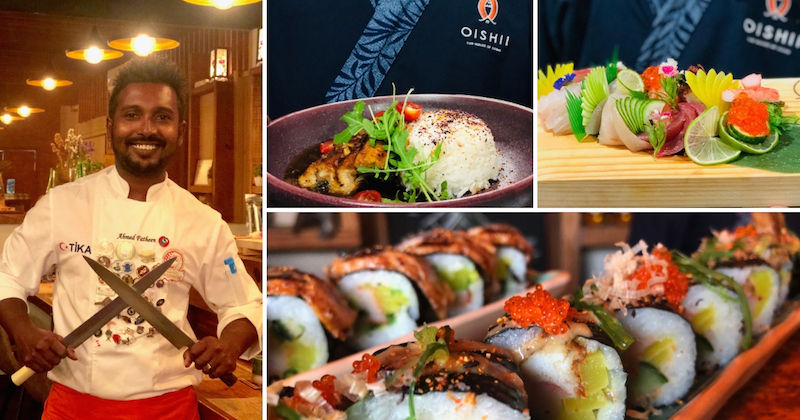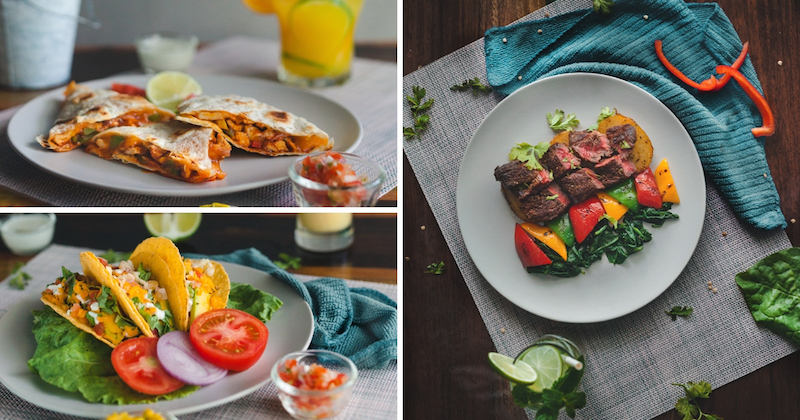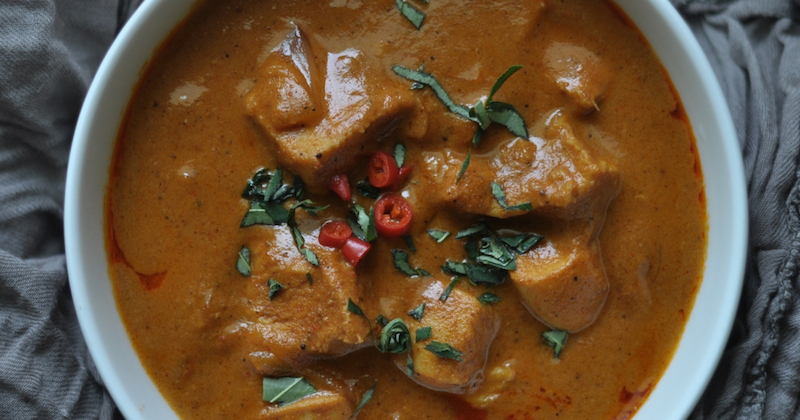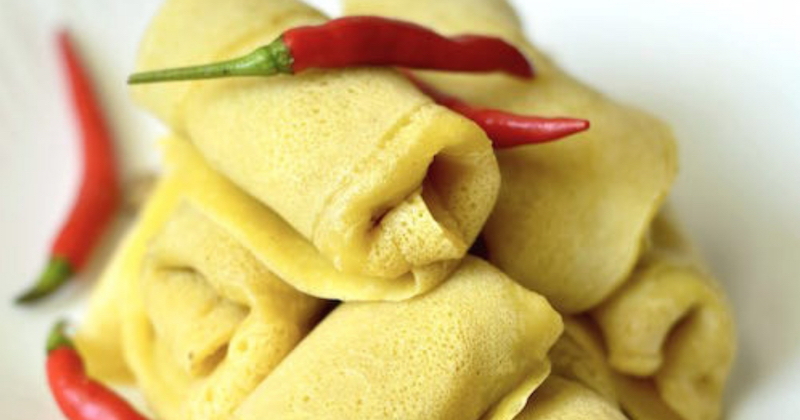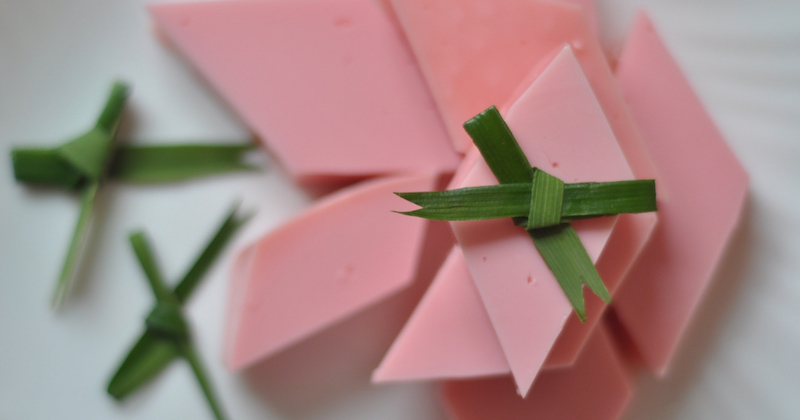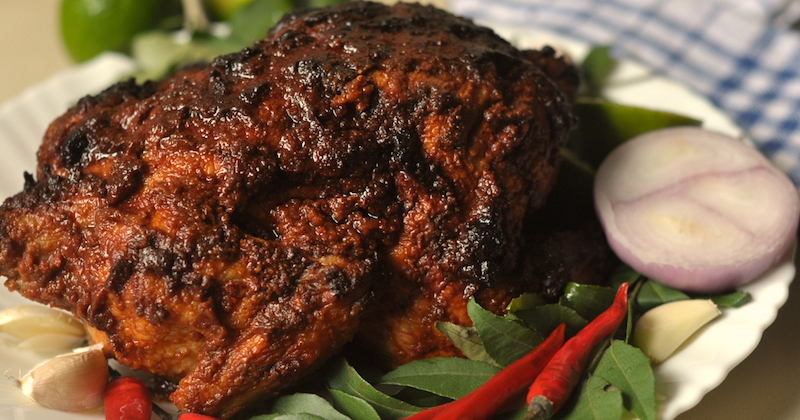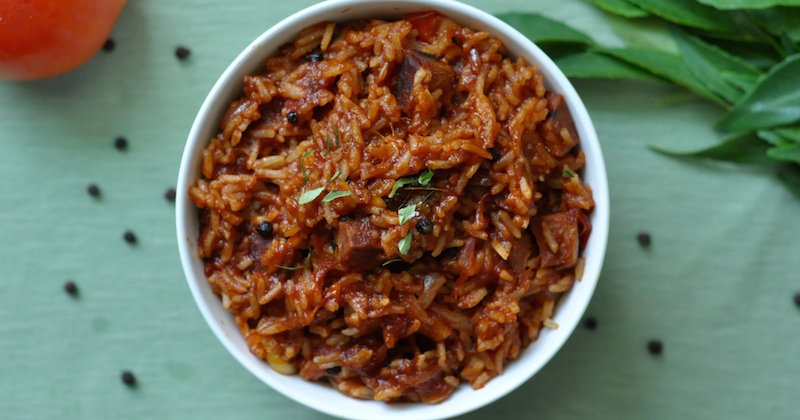Culinary Adventures of Mohamed Adil
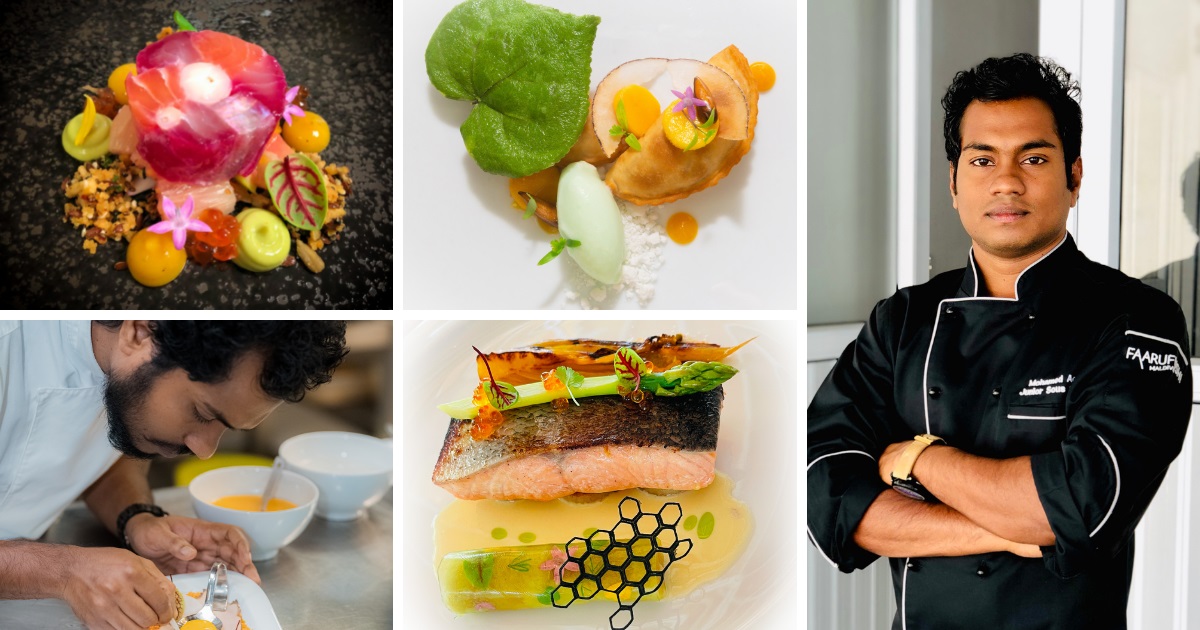
We had a chat with Mohamed Adil, the executive sous chef at Dhigali Maldives. An award-winning chef and one of the most prominent in the country, he’s an inspiration to many.
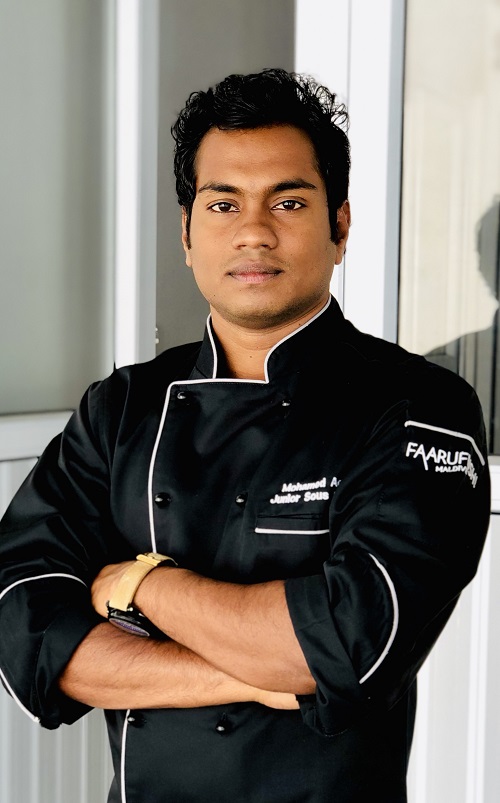
Lonumedhu: As the executive sous chef, what does a typical day at the resort look like?
Adil: I report to the executive chef so if he isn’t here on the island, I start my day at 8am. I go to the buffet and see if everything is running smoothly. And then I attend the morning meeting with the heads of department and GM where we discuss the daily operations. After that I go back to the kitchen and see what’s required for the outlets, and then we have the kitchen meeting at 10.30, where we discuss the day-to-day activities, challenges of the previous day or if a certain guest requires attention. We also conduct training sessions for our chefs. So it’ll go on until 1130.
And then I’ll check on the cleaning and see whether any work order needs to be done, do some paper work. And I go back to check on operations in all the outlets.
I’m always on the floor making sure everything is running smoothly. I don’t usually take breaks or stay in my room and I don’t take off days at the resort. Instead I’ll work and collect off days and try to go home for two days.
Once the dinner service is finished, I’ll do my reports, transfers for different outlets, and check on the orders and make sure that everything is recorded properly.
Before sleeping I usually do some self-study, I look at YouTube videos and chefs that I follow on Instagram to learn new techniques, so yeah, I take a few hours for myself to study and then I’d go to bed around 1.30am.
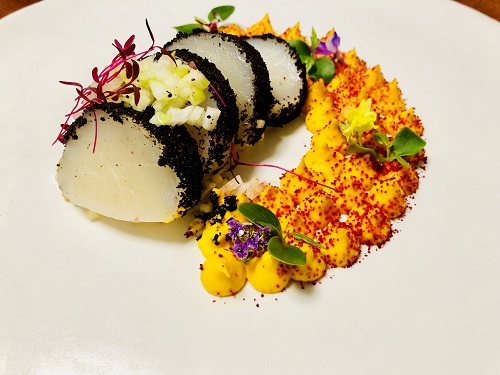
Lonumedhu: Going back to the beginning of your career, how did you develop an interest in the culinary field?
Adil: I never thought I’d end up in a professional kitchen. After completing my studies in Sri Lanka, I wanted to be an architect, but it didn’t happen. I was fed up of working at my father’s business, it wasn’t something that I enjoyed much, so I wanted to get out of it.
I attended one of the recruitment events for the Four Seasons Apprenticeship Program and got selected. I joined as a contract staff in stewarding, and once the program started, I joined as a kitchen apprentice.
Whatever I’ve done so far in life, I’ve put my whole heart into it. So I fell in love with working in the kitchen, because when you plate and present the food, you’re also being an artist. Since my father was an artist, and being around art throughout my life, it’s something that’s very special to me and it’s a way of expressing yourself, so I think that gave me a boost to become a chef.
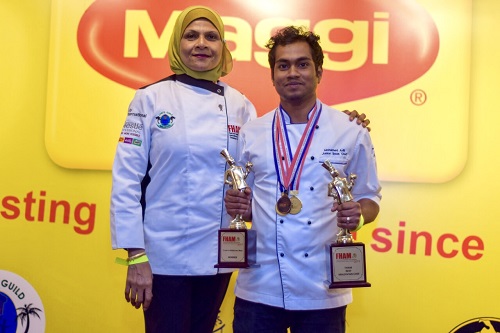
Lonumedhu: You’ve taken part in many culinary competitions and won many awards. Can you tell us a bit more about that?
Adil: The first time I won Best Maldivian Chef was in 2016, at the FHAM [Food & Hospitality Asia Maldives]. I was just 26 at the time, and that was my third competition. I didn’t take part the next year. And then in 2018, I won Best Maldivian Chef at the 2018 Hotel Asia Culinary Competition. The following year, I took part in FHAM and won Best Maldivian Chef.
Apart from that, I’ve also participated in a few international competitions; one that was in Istanbul where I represented Maldives along with chef Nathif from Baros Maldives. We competed with chefs from 12 countries. We did a Black Box Challenge and we won a bronze medal. The same year we both went to Abu Dhabi and won gold and a silver medal. In 2019, I was part of the team representing Maldives at a competition in China, and we won a bronze medal.
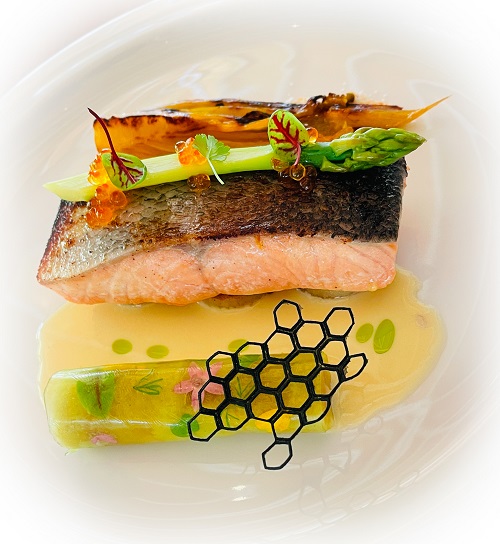
Lonumedhu: That’s impressive. Apart from the apprenticeship program, did you receive any formal training?
Adil: I didn’t go to culinary school but when I was in Four Seasons, I got specialised in Japanese cuisine, and I got trained by chef Kato who’s a famous Japanese chef. I got trained by him a few times and each time he visited, he’d be there for ten days. And for charcuterie, I got trained by chef Benito, who’s a charcuterie master from Belgium. He visited every year to conduct training.
I was lucky to have worked with many great chefs, great minds. Whenever I meet someone like that or when I get an opportunity to work with someone like that, I try to gain as much knowledge I can and see how I can improve my cooking.
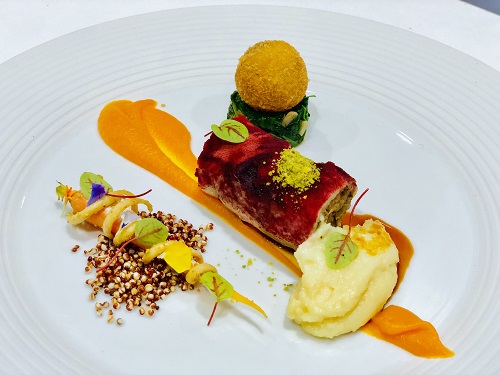
Lonumedhu: You hosted a couple of dinners at Salt restaurant last year. Can you tell us how that came about?
Adil: I was working at Farufushi, and when the resort closed down due to Covid-19, I went back to Malé. Even when I’m on leave I like to cook at home, so as soon as the restrictions were eased, I collaborated with one of my colleagues, Maha Naseer, and we started doing three-course meals for delivery. We had a different menu every day and took limited orders. We sold those for a few days and from that I made very good connections. And so one day, one of the owners of Salt restaurant approached me and asked if I could help with the menu upgrade and conduct training sessions.
He also told me that if I wanted host some dinners, he’d be more than happy to let me do it, and so I did a few lunches and dinners; five-course and seven-course.
At the same time, I hosted private dinners as well, where I went to clients’ houses and cooked them romantic dinners on the terrace. I just wanted to do something while I wasn’t working.
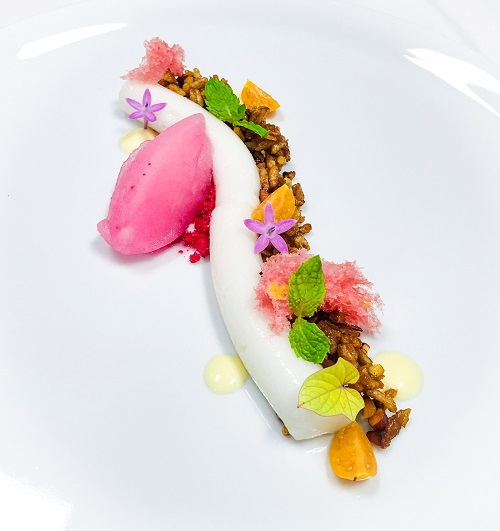
Lonumedhu: Do you plan on doing something like that in the future as well?
Adil: Actually even right now, when someone approaches me, I make sure to make it happen. There are two chefs whom I worked with in Farufushi that are working in Salt now. They’ve been trained with me. So, I coordinate everything over the phone; discuss the menu and sometimes I prepare the dishes at the resort, take videos and share with them, and then they’ll try to replicate it and show it to me. We usually take a week to get ready and then they’ll do the dinners.
So, even though I’m at the resort, I’ve hosted few dinners and two private dinners. Also, I do giveaways on Instagram, and we’ve done three giveaways so far and the winners were hosted at Salt. So, I try to keep in touch with the community and try to do something for everyone.
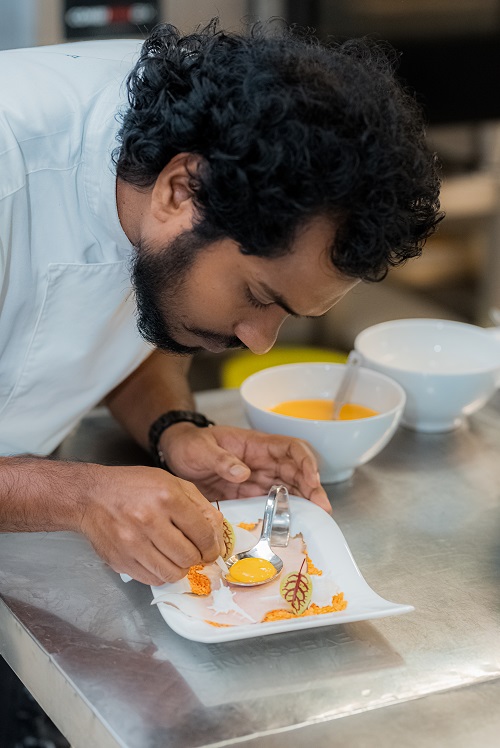
Lonumedhu: That’s great. Where do you draw inspiration for new dishes or plating designs?
Adil: For me, inspiration can come from anywhere. Sometimes it’s when I’m going for walks or watching the sunset, or when I see a couple walking, I see a story behind that.
And mostly, it’s about the ingredients. So if I get some tuna that’s really fresh, and if I recall a cooking method, I’d try to do something with that. It can be scenery, it can be ingredients, or sometimes when I want to tell a story. Apart from that, when I see a new ingredient on the market. And nowadays a lot of chefs use molecular gastronomy or other scientific techniques, so if I get ahold of such ingredients, I will try to do something using a new technique.
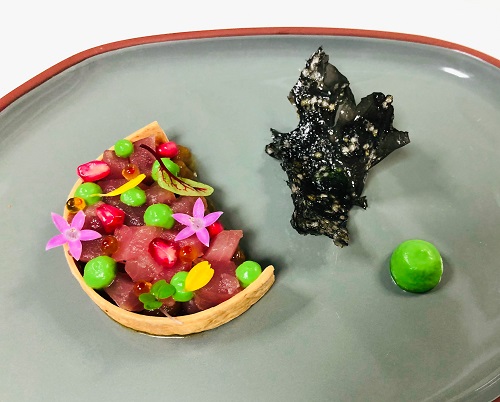
Lonumedhu: There must be many chefs that you admire or look up to. Who would you say is your favourite chef?
Adil: There are a lot of chefs that I admire. In my opinion, this isn’t a field where you can say he’s the best; everybody has a different story and everyone is different. If I had to choose, I’d say chef Gagan Anand. He’s an Indian but he’s based in Bangkok and he’s one of my favourite chefs. And chef Massimo is one. There are lots of international chefs that I admire. When they have made a mark, I follow them. For example, now the chef at Alchemist is the best right now for me because they use a lot of modern techniques. We have many good chefs in the Maldives as well. If I were to name a few, I would say chef Nathif is very good, and chef Fatheen, chef Soba as well. And most of the CGM members are really good. There are some chefs who are experts in their field, like chef Ishaq, who has great knowledge and a great mindset.
So it’s difficult to name a few. When a chef achieves a Michelin star or when they do something I admire or aspire to do, they become a favourite.
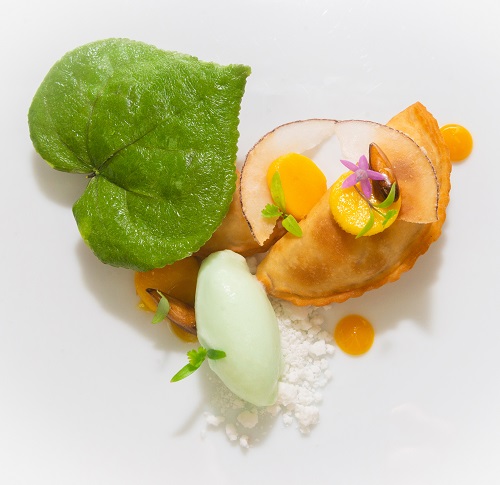
Lonumedhu: Do you have a favourite cuisine or dish that you prefer to cook more than others?
Adil: When I take a Maldivian dish and try to do a fusion version, that makes me really happy because my goal is that we put Maldivian cuisine on the world map. We have a lot of resorts but we do not highlight our cuisine enough. It’s just that it’s fading away because now the younger generation don’t really go into Maldivian cuisine. So it’s not highlighted. So whenever I cook a Maldivian dish or do a take on a Maldivian dish, it makes me really happy because in the resorts, I usually cook modern European cuisine.
Lonumedhu: Is Maldivian also your favorite cuisine to eat?
Adil: I’m a very simple person. I don’t fancy eating anything other than a fried rice or maybe chapati and garudhiya; the typical ones are my favourite. I don’t like pastas or Western cuisine. But when it comes to tasting, I eat everything. When I’m in the kitchen, I usually don’t eat lunch or dinner, but I’ll be testing things throughout. I believe that to be a great chef you have to constantly taste everything because if you don’t eat it, you can’t put it in the menu because you don’t know how it’ll taste. So I always taste everything.
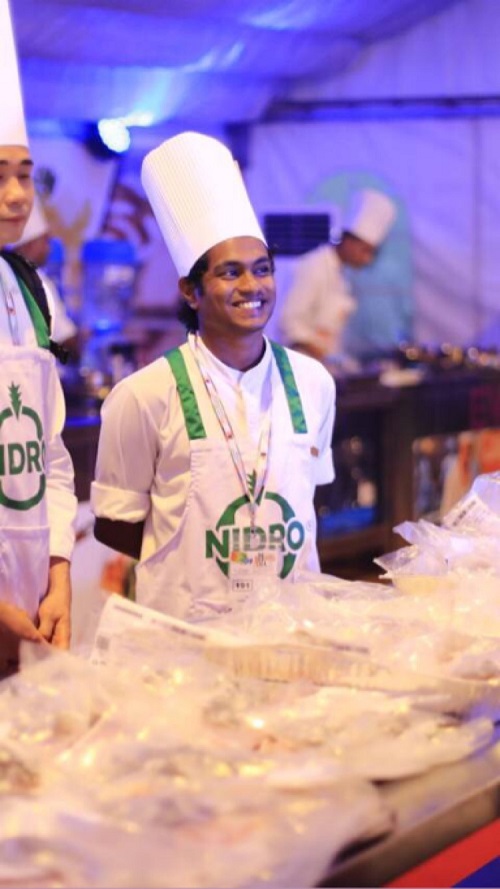
Lonumedhu: You started at the bottom and worked your way up. What’s your advice to aspiring young chefs?
Adil: I think it’s very important to make sure that we respect the superiors and that our attitude towards fellow human beings has to be good. And sometimes we don’t give enough time to grow because in the end, especially in the kitchen, you need to give yourself time to grow. It’s not something you can learn overnight, and become a chef. It doesn’t work like that. You can aspire to become executive chef in a few years but you need to give time.
When you come into the kitchen, it’s a hectic environment. It’s not an easy job, you know. You need to be very energetic, you need to be passionate. If not, I don’t think you can work in the kitchen. It’s a tough job and it’s not easy to survive in the job, especially if you work at a resort. Because kitchen staff usually work all day. But if you look at diving, recreation, engineering or other departments, mostly you will get the night free. So if you are not committed, it’ll be difficult.
I would say starting is difficult but once you get to a point where you are in a good position, it’ll feel really good and the pay will be good as well. So if you have the passion for it, it’s good to start early and try to give your best because in the end, without hard work and commitment, you will not succeed at anything in life.
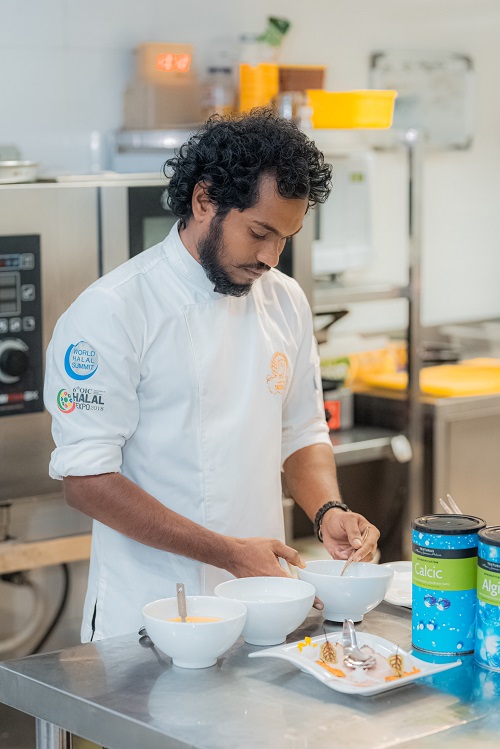
Lonumedhu: That’s true. What’s your plan for the future?
Adil: I think if you’re a chef, getting a Michelin star will be the long-term dream so that’s a dream for me as well. And I want to be the first Maldivian that gets a star. Although, even if it’s not me, I’d be really happy to see a Maldivian get that.
Apart from that, I want to contribute to the community. Because the reason I got here is that I met many good people, and I was at the right place at the right time. And because I got opportunities. I want to provide that opportunity for others.
If I get to mentor younger generations, I’ll be very happy. I do that even now, but I don’t think that’s enough, so I would like to contribute in mentoring the younger generations and be an inspiration to them. It will make me very happy to know that I helped change someone’s life in any way.
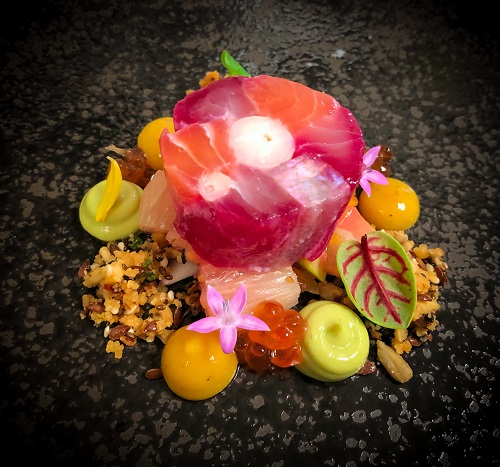
Lonumedhu: Should we expect to see a culinary institute or your own restaurant in the future?
Adil: Yes, I would love to have my own restaurant, a chain of restaurants actually. Because, for example if I opened a fine-dining restaurant, there’ll be people who can’t afford it. And there’ll be people who like to have junk food like burgers and pizza. So I’d like to have a chain where I can provide service to everyone. So that’s one of the things that I wish to do.
Hopefully I’ll launch a private dining service with an App where the menu can be customised. Before the pandemic I used to think that locals don’t like the food we cook at the resorts, but that was just the perception I had because I wasn’t based in Malé and I didn’t know what people liked, but now I know that there’s a huge market for that.
Right now I’m only serving my food to tourists but I want to provide the same experience to the local community as well. And any opportunity related to the culinary field, I’d be happy to do that.
About Lonumedhu
Lonumedhu is about eating great food right here in the Maldives.
Our easy to follow recipes use locally available ingredients.
In our blog you will find food news, interviews with chefs and cooks, useful information about eating out and other foodie reads.
Contacts
© Lonumedhu.com 2017-2026. All rights reserved. No part of this website may be reproduced without the written permission of the publisher.
Advertisers
Lonumedhu.com has partnered with Qualia Pvt Ltd, a publishing & marketing agency, for its desktop and mobile advertising.
Advertising enquiries should be directed to (960) 987 4396 or marketing.sales@lonumedhu.com.

